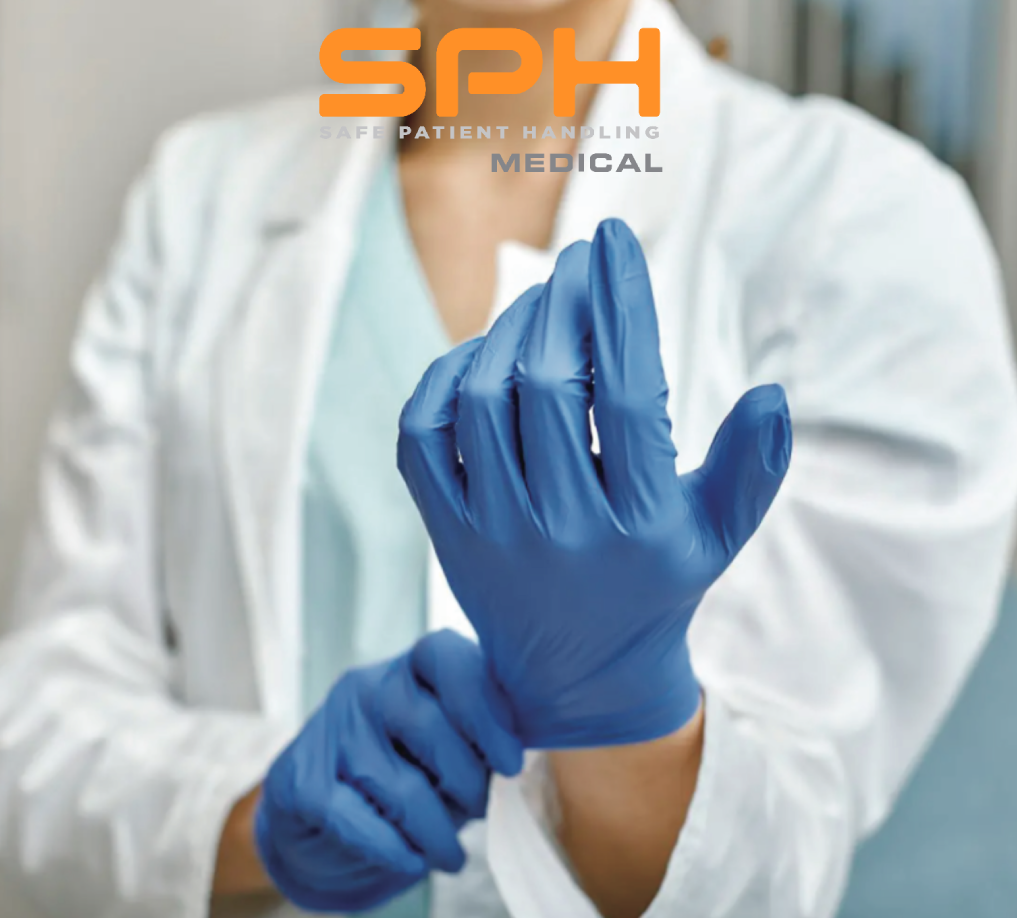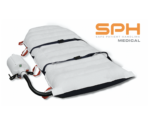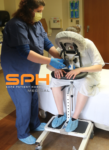Nitrile Examination Gloves from Malaysia are in high demand at the moment. If you work in the food service, beauty, chemical, automotive or health care industry, you likely protect your hands with nitrile gloves. Recent threats to public health, including but not limited to Covid-19, and changes in the medical field have given the exam glove industry a healthy boost.
History of Nitrile Gloves
When doctors began wearing surgical gloves, they reused the same pair. Donning gloves protected the wearer from external pathogens. But reusable gloves are essentially as effective as hand-washing for preventing transmission of germs to others.
Before the 1800s, germ transmission and infection were responsible for a 50-percent mortality rate in surgery patients. Surgeons didn’t always have good hygiene practices. Throughout the 1800s, medical professionals started to use harsh substances to disinfect medical instruments. When these chemicals caused a skin reaction in a Johns Hopkins nurse, Dr. William Halstead collaborated with Goodyear to develop rubber gloves for her.
At the same time, Malaysia was capitalizing on one of its natural resources. The first rubber plantations in the country began to pop up in 1896.
Wearing protective examination gloves became commonplace by the early 1900s. The first disposable examination gloves were made from latex, a type of rubber that comes from a tree that grows well in the Malaysian climate.
Then, the AIDS epidemic hit. The demand for medical examination gloves soared based on recommendations from the Centers for Disease Control and Prevention. Malaysian manufacturers churned out examination gloves.
With so many people using latex gloves, however, the world began to realize that the material could cause sensitivities and allergic reactions in people who came in contact with it. Attempts to replicate natural rubber had been rampant since World War II. Nitrile was first created in 1930, but it wasn’t used for gloves until the 1990s.
Entrepreneurs in Malaysia and other parts of Asia renewed their interest in manufacturing gloves. This time, they made the products from nitrile.
Today, about 75% of the medical gloves on the market come from Malaysian manufacturers.
Raw Materials
Although most people refer to nitrile as rubber, it doesn’t come from a natural source. It is a synthetic material that is formed from amides, aldehydes, ketones and halogenoalkanes. To be effective, nitrile gloves must be flexible, form-fitting, comfortable and puncture-resistant.
The following two compounds are bonded together to make nitrile gloves:
- Acrylonitrile – A monomer that is created by the ammoxidation of propylene
- Butadiene – A non-corrosive gas and byproduct of the production of propylene and ethylene
Quality and Benefits of Nitrile Gloves
Nitrile gloves must follow specific quality standards to provide adequate healthcare worker protection. The material is inherently resistant to damage from many noxious chemicals, which makes it ideal for various industries. But it won’t keep users safe if certain quality standards aren’t followed.
In the U.S., the Food and Drug Administration regulates this class I medical device. The gloves must adhere to strict standards regarding the following:
- Holes
- Freedom from powder
- Degree of sterility
- Tensile strength
- Ultimate elongation
- Physical qualities after aging
- Biocompatibility
Medical gloves have different regulations than all-purpose gloves. They must undergo rigorous testing and require:
- FDA 510K approval
- Registration and listing with the FDA
The FDA controls the marketing for this product too. Vague labeling claims are restricted. Only gloves that have the word “examination” on the packaging may be used in the medical field.
Other categories that have labeling or regulatory requirements include:
- Dental examination or dental surgeon’s gloves – May include the word “dental,” but must include the word “examination”
- Chemotherapy gloves – Are tested for penetration and permeation from chemotherapy drugs
- Microsurgery gloves – May have decreased thickness in particular areas but cannot be thinner than the FDA standard
- Orthopedic surgery gloves – Label must declare the measured thickness
- Radiation attenuating gloves – Must meet requirements for surgeon’s glove as well as data backing x-ray reducing claims
Other requirements safeguard the security of nitrile exam gloves. Expiration dates and lot numbers on the label allow consumers to ensure that they’re using safe products.
Today’s Malaysian Nitrile Examination Gloves Production and Market
The COVID-19 pandemic has shaken up the nitrile glove industry in Malaysia and beyond. An initial shortage caused concern among healthcare workers and the public. When the U.S. banned imports of disposable nitrile gloves from certain companies due to forced labor and other labor compliance concerns, some manufacturers claim to have changed their policies.
Amid these allegations, new players are entering the glove game in Malaysia. Property developers are partnering with manufacturers to enter the growing industry. These projects will create new job opportunities for Malaysian residents even though most of the gloves are exported outside of the country’s borders.
Some other factors impacting demand include:
- Population growth
- A larger aging population
- Rapid industrialization of developing countries
- Growth of the healthcare industry
- Increasing rates of disease
- Enhanced healthcare and hygiene education
Market fragmentation is driving competition. But merger, acquisition and partnership strategies are helping key players, such as Top Glove Corporation Bhd, Ansell Ltd. and Hartalega Holdings Berhad, stay in the game and others to enter.
Malaysian exports of nitrile examination grade gloves grew by 51.9 percent in 2020. Moreover, the Asia Pacific consumer market is growing in this category as the development of medical facilities increases. Researchers predict that the nitrile glove market will reach $9.41 billion by 2027.
As a US supplier to hospitals and healthcare facilities SPH Medical is a trusted source for Nitrile Examination gloves from Malaysia. SPH Medical delivers gloves directly to hospitals including the Chemotherapy Drug and Fentanyl Citrate Tested Nitrile Exam Glove from Hartalega which has been adopted by many leading health systems. Contact SPH Medical to learn more or to request a quote for your facility.



